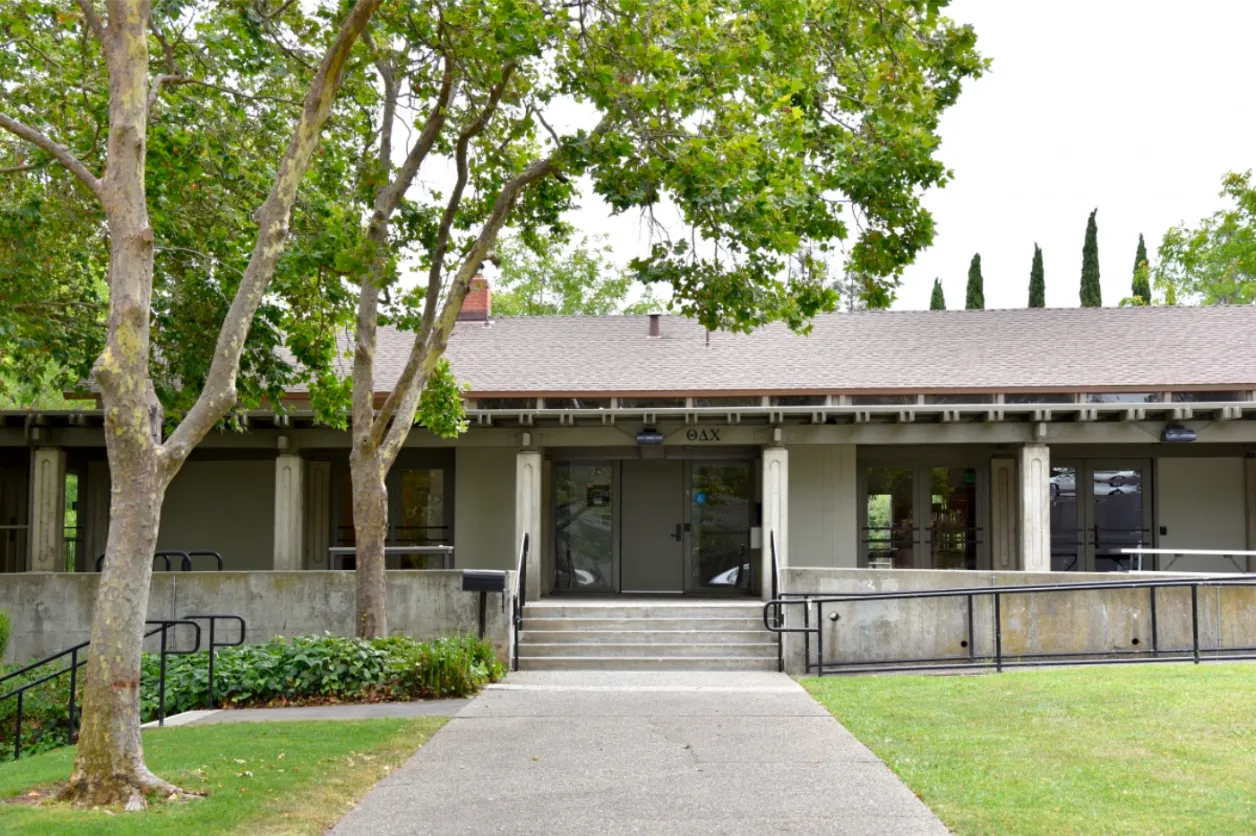Table of Contents
This morning, lawyers for Theta Delta Chi (TDX) Chapter at Stanford filed a writ of administrative mandate against Stanford University, which kicked the fraternity off campus after member Eitan Weiner died in January 2020 of a Percocet overdose. Though TDX is being sued—alongside the university, the drug dealer, and Weiner’s roommates—by Weiner’s surviving family members, the writ targets Stanford University for unfairly removing TDX’s university recognition for six years. TDX will be able to re-establish itself on campus in 2027, after current freshmen have already graduated.
It’s likely that fear of reprisal (and the impending lawsuit the Weiner family filed in late 2021) motivated the removal of TDX from campus. The writ notes that though Stanford’s Community Standards director organized a review of TDX by an Organization Conduct Board (OCB), “On March 22, 2021, ignoring the OCB Panel’s recommendations, Mona Hicks, Senior Associate Vice Provost & Dean of Students determined that TDX should lose its University recognition for six years, ending in Spring 2027.” The fraternity was removed from campus more than a year after Weiner died; if the fraternity posed such a threat, why wasn’t it suspended immediately? This timeline suggests that TDX was kicked off campus as damage control.
The writ alleges that only five members of TDX—including Weiner’s three suitemates and an RA—knew of Weiner’s initial overdose on January 15, 2020. A suitemate brought in the RA, informed him of Weiner’s condition and “shared his concern with the [RA] that perhaps the bottle of Percocet [Eitan Weiner] had received earlier in the day was laced with fentanyl.” The RA swiftly told the Resident Director (RD) John Giammalva, as was required. Though the RD was required to notify Public Safety via an online form, “there is no evidence to indicate that Dean Giammalva followed Stanford policies and procedures and reported to Public Safety.” The RD—not the TDX RA—disobeyed the requirements imposed on him by the university in times of a crisis, like this situation. The Stanford employee in charge of student well-being who failed to communicate a student overdose to higher ups is still employed by the university, though no longer in a residential capacity.
Although individual members of TDX admitted to purchasing the fentanyl-laced Percocet with Weiner (one of whom is an RA at EBF, another personnel error from Stanford), the writ alleges that Stanford’s suspension and unhousing of TDX is an act of scapegoating. Despite foul play by other fraternities, the writ states, “For the first time in 130 years, the University removed recognition of a Greek organization. It did so to the most diverse Greek organization that was on campus, and one that had committed no serious infractions…The University needed a scapegoat, and this diverse group of male students was an easy target.”
TDX’s removal from campus was announced mere weeks before the introduction of the Neighborhood System. Though the two events may seem unrelated, both instances demonstrate the determination of the administration in its War on Fun; a student death was scapegoated to justify a purge on Greek Life. In the years preceding TDX’s removal from campus life, Sigma Chi was unhoused in 2018, and Kappa Alpha followed a year later. And, the untimeliness of TDX’s removal reflects a snail-pace effort on Stanford’s behalf on pursuing the truth: it took them three months to hire an investigator and nine months for TDX to be referred to the OCB panel.
TDX’s unwarranted removal from campus is not the only instance of Stanford’s questionable management of the situation. The writ alleges that, in violation of both the university’s own OCB Policies and Procedures and due process (Doe v. Regents of California (2018)), Stanford “withheld evidence from TDX and failed to provide TDX an opportunity to cross-examine relevant witnesses.” TDX was not granted a fair judicial process to evaluate its unhousing and removal from campus. This is only one instance of Stanford flouting the university’s own judicial processes: administrative overreach and bad practice have been widely reported within the last few years. Even if TDX wins the appeal, there are only a handful of its former members on campus; the blow to Greek Life has been dealt.
The writ’s defendants are Mona Hicks, Senior Associate Vice Provost & Dean of Students, and Susie Brubaker-Cole, Vice Provost for Student Affairs, and Stanford University. Stanford’s administration, especially those in charge of student life, has had numerous issues over the years and has been hostile to those who threaten its image. The emerging facts in the TDX lawsuit raise doubts about whether Stanford is giving a deceased student justice or using Weiner’s death as a means to the university’s ends.









